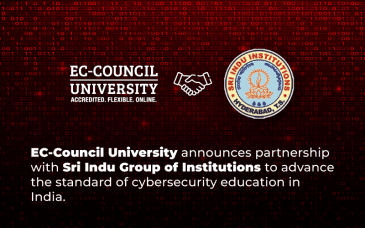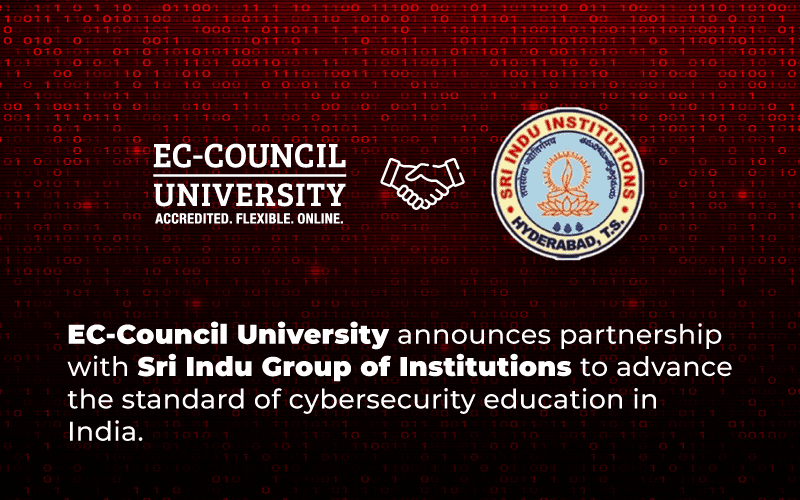How to Bridge the Skills Gap in the Cybersecurity Industry
While technological advancement has ushered in a new era of development and growth, it has also led to a global wave of cyberattacks. The average cost of a data breach increased from USD 3.86 million in 2020 to USD 4.24 million in 2021, in part due to remote working and digital transformation induced by the COVID-19 pandemic (IBM Security, 2021).
This situation has heightened the demand for cybersecurity professionals to assist organizations in defending their digital assets. Now is an opportune time for IT enthusiasts to pursue a career in cybersecurity and enhance their skills with a degree or certification in the field.
Qualified cybersecurity professionals can help mitigate the risk of cyberattacks, which companies continue to face. However, despite the need for cybersecurity professionals, there is a considerable talent shortage in the industry. This article will discuss the cybersecurity skills gap and how cybersecurity degree programs can help bridge this gap.
The Cybersecurity Skills Gap
The cybersecurity skills gap is a major cause of concern for chief information security officers worldwide, with about 58% admitting that the inadequacy of their cybersecurity staff will hamper their attempts to protect their companies from data breaches (Ponemon Institute, 2018).
This is especially noteworthy given that the cost of remedying cyberattacks skyrocketed to USD 1.8 billion in 2021 (ENISA, 2021). In response to this, 82% of global organizations increased their cybersecurity spending between 2020 and 2021, hoping to attract the best cybersecurity talent from around the world (Bissell et al., 2021).
Building a Career in Cybersecurity
The cybersecurity industry is constantly looking for professionals who can occupy the growing number of available information security positions. Now more than ever, employers need skilled professionals who are trained in the latest cybersecurity techniques and strategies.
The U.S. Bureau of Labor Statistics (2021) projects the rate of employment for information security analysts to increase by 33% between 2020 and 2030. A degree in cybersecurity will equip you with the skills necessary to succeed in the field.
EC-Council University (ECCU) offers both bachelor’s and master’s degrees in cybersecurity. ECCU’s fully online degree programs are comprehensively designed to help candidates develop the skills necessary to assist companies in protecting and securing their systems, networks, and data.
How a Degree in Cybersecurity Puts You Ahead of the Curve
Yuri Diogenes, a professor at ECCU, notes that “a degree is a long-term investment with progressive impact. It opens many doors for a candidate and helps them pursue a different career option if needed in the future.” He adds that “a degree in cybersecurity helps candidates make their contribution to the information security community, network with other specialists, gain certifications, and get valid experience in the industry.”
The Benefits of an Online Degree in Cybersecurity
Let’s talk about the major benefits of an online degree in cybersecurity.
Flexibility and Convenience
EC-Council’s online mode of study allows you to benefit from a curriculum rich in cybersecurity strategy and management from the comfort of your home. With an online degree in cybersecurity, you can access your program of study anytime and anywhere, meaning that your physical location doesn’t need to limit your learning capacity.
Affordability
Online degrees are generally affordable in comparison with traditional degrees. At ECCU, you’ll experience high-quality education at a reduced cost. Tuition rates are USD 465 per credit hour for the bachelor’s degree program and USD 540 per credit hour for the master’s program.
Bright Career Prospects
ECCU’s online cybersecurity degree programs open a world of lucrative career opportunities. In addition to earning a reputable degree in an in-demand field, ECCU’s master’s specializations can boost your chances of securing a position in areas such as cloud security architecture, security analysis, digital forensics, incident management, and more.
Opportunities to Learn from Global Experts
The faculty at ECCU have years of real-world experience—many are current practitioners—and provide valuable mentorship and industry insights to students. They offer guided discussions to enhance students’ understandings of critical cybersecurity concepts, supplemented with hands-on practice through the university’s iLabs facility. In this way, ECCU students are able to learn in an interactive and engaging classroom environment, even in an online program.
About EC-Council University
ECCU provides quality distance education programs in the cybersecurity space and is an emerging leader in the field of cybersecurity education. ECCU’s programs equip students with the technical and practical skills necessary to successfully combat new and emerging cyberthreats.
The Bachelor of Science in Cybersecurity program includes coursework in cybersecurity management, security threat assessment, and incident response, among other topics. The program’s leadership and management courses help prepare graduates for leadership roles in the cybersecurity industry.
The Master of Science in Cybersecurity program is designed to equip students with advanced skills in cyberthreat assessment, incident response, security and organizational management, and more. This degree prepares students for managerial and executive positions in cybersecurity in companies across various industries.
Found this article interesting? Follow EC-Council University on Facebook, Twitter, Instagram and LinkedIn to read more exclusive content.
FAQs
Ans. Candidates with a degree in cybersecurity can apply for many positions in information security, IT, and related fields. Some possible job roles include security architect, chief information security officer, security auditor, digital forensics expert, cryptography analyst, incident responder, and security software developer.
Ans. Graduates with a degree in cybersecurity can expect to enjoy lucrative careers, though specific pay will differ based on factors like experience, education, and location. According to PayScale (2022a, 2022b, 2022c), in the United States, professionals in the network security industry make an average of USD 90,000 annually, with average salaries for IT directors and chief information security officers reaching more than USD 122,000 and USD 167,000, respectively.
Ans. While their specific tasks vary depending on their industry and role, cybersecurity professionals are generally responsible for safeguarding organizations’ data, systems, and networks. This may include highly sensitive information, such as Social Security details or military intelligence.
Ans. An online degree in cybersecurity helps you attain the industry knowledge necessary for a successful career in cybersecurity without the restrictions of a physical classroom. With ECCU, you can easily and conveniently earn a world-class cybersecurity degree anywhere and at any time.
References
Bissell, K., Fox, J., LaSalle, R. M., & Dal Cin, P. (2021). How aligning security and the business creates cyber resilience. Accenture. https://www.accenture.com/_acnmedia/PDF-165/Accenture-State-Of-Cybersecurity-2021.pdf
Bureau of Labor Statistics. (2021). Information security analysts. In Occupational outlook handbook. U.S. Department of Labor. https://www.bls.gov/ooh/computer-and-information-technology/information-security-analysts.htm
ENISA. (2021). ENISA threat landscape 2021. https://www.enisa.europa.eu/publications/enisa-threat-landscape-2021
IBM Security. (2021). Cost of a data breach report 2021. https://www.ibm.com/downloads/cas/OJDVQGRY
PayScale. (2022a, March 14). Average chief information security officer salary. https://www.payscale.com/research/US/Job=Chief_Information_Security_Officer/Salary
PayScale. (2022b, March 16). Average information technology (IT) director salary. https://www.payscale.com/research/US/Job=Information_Technology_(IT)_Director/Salary
PayScale. (2022c, April 6). Salary for industry: Network security solutions. https://www.payscale.com/research/US/Industry=Network_Security_Solutions/Salary
Ponemon Institute. (2018). 2018 study on global megatrends in cybersecurity. Raytheon. https://www.raytheon.com/sites/default/files/2018-02/2018_Global_Cyber_Megatrends.pdf












